At the Canadian Museum for Human Rights, visitors will ascend through the museum while engaging in a series of galleries that showcase the many turning point moments in the development of modern human rights.
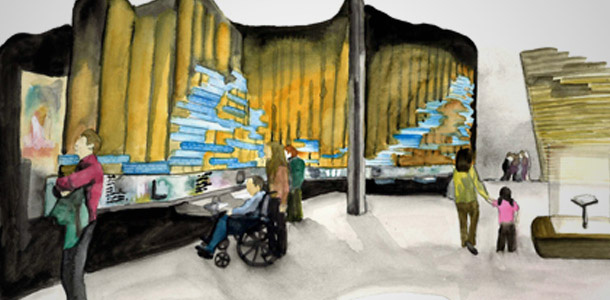
Gallery 1 - An Introduction to Human Rights
Throughout history, people have grappled with ideas about human dignity, respect and responsibility. Today the term "human rights" generally refers to the rights and freedoms we have simply because we are human. It’s an idea thousands of years in the making.
In this gallery, we are immersed in a multi-sensory experience featuring a remarkable "object" theatre and a timeline that presents 100 important moments in human rights history throughout the ages and around the world.
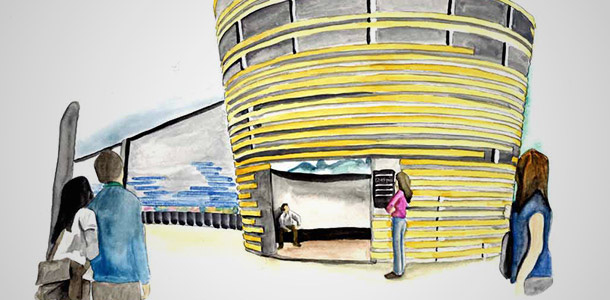
Gallery 2- Listening to Indigenous Voices
First Nations, Métis and Inuit peoples have concepts of rights and responsibilities based on worldviews in which everyone and everything is interrelated.
In one of the most dramatic spaces of the Museum, the focus is a circular theatre of curved wooden slats representing the multitude of Canadian Aboriginal traditions. The theatre will play a 360-degree film and serve as a space for storytelling, performance and discussion.
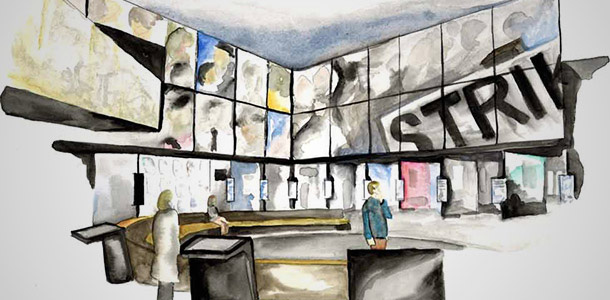
Gallery 3 - One Nation, Countless Journeys
There have been steps and missteps on the road to greater rights for everyone in Canada. This panorama of experience reflects continuing efforts to achieve human rights for all.
This gallery, the largest of the Museum, explores dozens of Canadian stories from French-language rights to the Chinese head tax, from voting rights to cultural dispossession in the North. A digital canvas relays stories across a 96-foot screen, while others are told in floor stations and story niches.
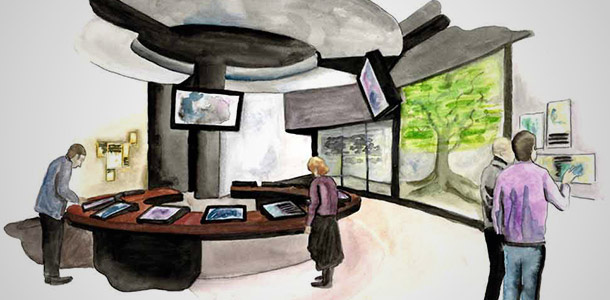
Gallery 4 - Our Evolving Legal Framework
Canada’s unique legal system has evolved to protect human rights. It has been likened to a living tree for its ability to grow and adapt to new realities. A digital “living tree” projection evokes the constant evolution of laws, while a debate table enables us to explore pivotal cases from different perspectives.

Gallery 5 - Human Rights in Darkness
When the Nazi government used laws and violence to deprive people of their rights as citizens and humans, and the majority went along, genocide was the horrific result. We examine the Holocaust to learn to recognize genocide and try to prevent it.
The “broken-glass” theatre examines Canada’s own experiences with anti-Semitism. Touch-screen monitors allow us to analyze Nazi techniques of genocide and compare them to methods used in other genocides around the world.
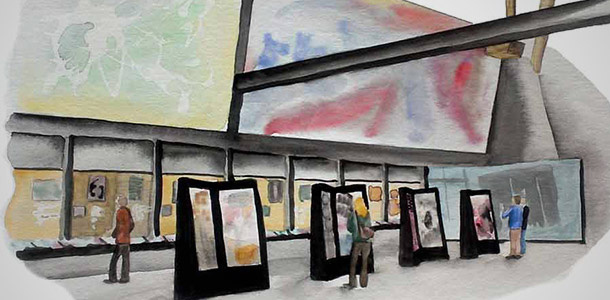
Gallery 6 - The Universal Declaration of Human Rights
The idea that rights belong to us just because we are human—no matter who we are or where we live—was adopted in 1948 in the Universal Declaration of Human Rights. People continue to work tirelessly to make this great hope a reality. Large monitors relay the power of activism and the role of social movements in motivating change.

Gallery 7 - Speaking Out on Human Rights Violations
Words are powerful. When people dare to break the silence about mass atrocities, they promote the human rights of everyone.
This gallery explores the role of secrecy and denial in many atrocities around the world. It includes a focused examination of the Ukrainian Holodomor, the Armenian Genocide, the Holocaust, the Rwandan Genocide and the Srebrenica Genocide in Bosnia.

Gallery 8 - Canadians Who Are Making a Difference
Be inspired by Canadians taking action on human rights at school, in communities and around the world. The individual choices we make every day can make a difference. This gallery includes an interactive table about human rights challenges faced by youth and inspiring stories of Canadians who work to make a difference.

Gallery 9 - Human Rights, the Media and the Modern World
Human rights are ever-changing in our interconnected world. How should we respond? Awareness, critical thinking and deep understanding help us determine effective action. Bringing us face-to-face with contemporary human rights struggles and action, this gallery features an interactive wall map, a tapestry of human rights defenders and a small theatre to make us think critically about what we watch and read.
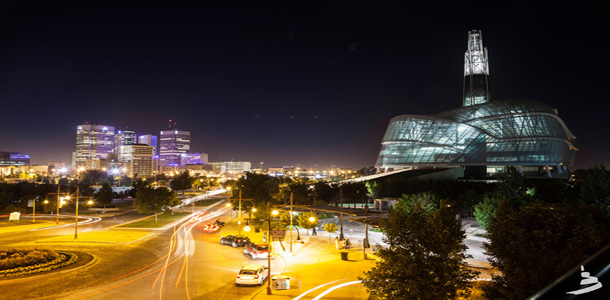
Gallery 10 - Expressions
A changeable gallery that will feature a diverse range of temporary exhibits focused on many aspects of human rights.

Gallery 11 - The Sights and Sounds of Positive Change
What do human rights mean to you? Respect for others? Dignity for all? Equality and freedom? Ideals become real through action, imagination and commitment. Intended to spark a personal commitment to positive social change, this gallery incorporates objects and images from events that have promoted human rights, and asks us to contemplate our own role in building a better world for all people.
— Images and text courtesy of Canadian Museum for Human Rights